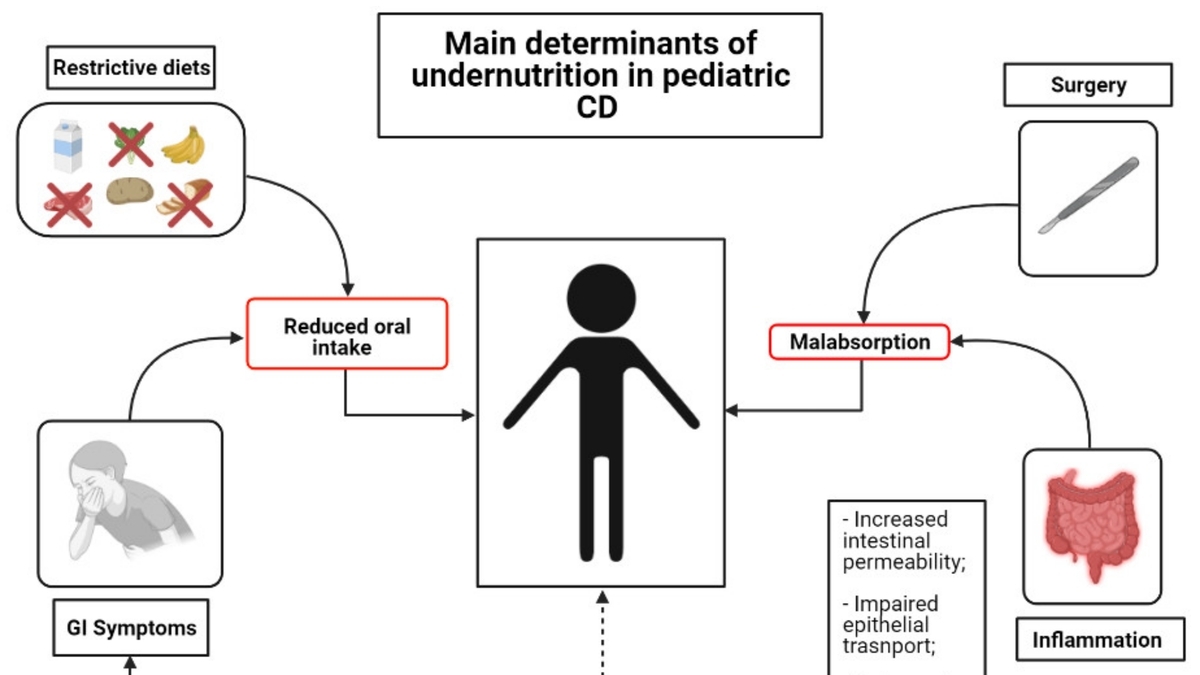
Recent research published in Gut has shed new light on the correlation between an early-life diet and the subsequent risk of developing inflammatory bowel disease (IBD). Following two Scandinavian birth cohorts, the study observed that a high-quality diet at the tender age of one could be linked to a reduced risk of IBD later in life. On the other hand, the consumption of sugar-sweetened beverages (SSBs) appeared to increase IBD risk. This study emphasizes the crucial role of diet quality in the first year of life in influencing the risk of IBD development.
Understanding the Study
For this study, the researchers used data from two birth cohort studies. The aim was to investigate whether the quality of early life diet and food intake frequencies had any relation with the subsequent risk of IBD. The study found a significant connection between a high-quality diet, including high fish intake, at one year of age and a reduced risk of IBD. On the flip side, a high intake of sugar-sweetened beverages was linked to an increased risk of IBD in children. It underlines the importance of diet quality, particularly at one year of age, for IBD risk in the later stages of childhood.
Quality of Diet and Risk of IBD
Data from over 21,000 children in Sweden and more than 114,000 children in Norway were involved in the study. The results showed that a medium and high-quality diet at the age of one was associated with a 25% lower risk of IBD compared to a low-quality diet. Specifically, a high intake of fish and vegetables at the age of one was linked to a lower risk of IBD. Conversely, the consumption of sugar-sweetened drinks was linked to an increased risk. This pattern remained consistent even after considering various factors, including parental history of IBD, the child’s sex, and education. However, it’s important to note that this study is observational and thus cannot establish causation. It’s also worth mentioning that the participation rate in the study was higher in Sweden compared to Norway.
IBD Risk and Early Life Diet: A Closer Look
The study involved 21,700 children from the All Babies in Southeast Sweden study and 114,500 children from The Norwegian Mother Father and Child Cohort Study. The findings indicated that a higher diet quality, including a higher intake of vegetables, fruit, and fish, and a lower intake of meat, sweets, snacks, and sugar-sweetened drinks, was associated with a lower risk of IBD. The researchers suggested that early life diet, possibly mediated through changes in the gut microbiome, may affect the risk of developing IBD. Gastroenterologist Dr. Ashwin Ananthakrishnan of Massachusetts General Hospital, Boston, USA, suggested that a preventive diet, including adequate dietary fiber, fish intake, minimizing sugar-sweetened beverages, and preferring fresh over processed and ultra-processed foods and snacks, might be advisable despite the absence of gold standard interventional data.
Dietary Intake and IBD Risk: The Findings
The study conducted at the University of Gothenburg included over 80,000 children. The findings support the hypothesis that early life diet, possibly mediated by changes in the gut microbiome, can affect the risk of developing IBD. High fish intake at the age of one was associated with a 54% lower risk of ulcerative colitis, and high vegetable intake at one year of age was associated with an overall reduced IBD risk. High intake of sugar beverages was accompanied by a 42% increased risk of IBD. However, it’s important to remember that this is an observational study, and therefore causality cannot be established.
The results of these studies underscore the importance of a healthy diet in early life, especially in the first year, in influencing the risk of developing IBD later in childhood. While these findings need to be further explored and confirmed, they offer valuable insights for parents, healthcare professionals, and policy-makers, emphasizing the need to promote healthy eating habits from a young age.
